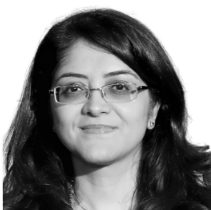
Covid-19, while posing many difficult challenges for countries around the globe; has also opened doors for fast paced strategic thinking and action for responsive governments. India has risen to the challenge to bring in some landmark reforms across sectors in the year 2020. In the current context, re-imagining India’s approach to diplomacy in the post-Covid world is imperative.
'Soft power’- a term introduced by Joseph Nye in the 1980s, is defined as the ability of a country to persuade others to do what it wants without force or coercion and it is a key underpinning element of any country’s diplomatic strategy. This sits alongside the country’s external affairs policy and supports establishment of additional routes of collaboration and long-term people to people engagements or ‘living bridges’.
The natural route of soft power is through promotion of a country’s culture, education, and language to create a connect with the youth and future leaders of other countries. India has had an organisation-led approach for long on this front. The Indian Council for Cultural Relations (ICCR), founded in 1950 by Maulana Abul Kalam Azad, independent India’s first education minister, is at the heart of this. This organisation’s objectives are to actively participate in the formulation and implementation of policies and programmes pertaining to India’s external cultural relations; to foster and strengthen cultural relations and mutual understanding between India and other countries; to promote cultural exchanges with other countries and people, and to develop relations with nations.
Soft power, through promotion and collaboration on culture, education, language to connect with a country’s youth and future leaders, enhances long term people to people links
The ICCR has 17 offices in India and Indian Cultural Centres in 20 countries and focuses on cultural activities in India and overseas, supporting a number of cultural institutions across India, sponsoring individual performers in dance, music, photography, theatre, and visual arts; offering language classes, travel grants to academic and distinguished visitors, fellowships and scholarships, organising conferences and exhibitions etc.
It is now pertinent to question whether the approach to soft power from the last decade is still relevant? Further, what strategies and tools can be used in the post-Covid world? Are education and culture still its pillars? Does India need an organisation-specific approach or will it be beneficial to collaborate and work together across departments and organisations for maximising results?
It is now pertinent to question whether the approach to soft power from the last decade is still relevant?
India’s ambition for 2030 is huge and therefore, a combination of the soft power and ‘sticky power’ is worth pursuing. Originally used by Walter Russell Mead, ‘sticky power’ described Washington’s ability to deploy a set of economic institutions and policies that attract others towards U.S. influence and then traps them in it. It essentially translates into making the country’s economic institutions and policies so attractive that it is impossible for anyone to leave.
‘Sticky Power’ is described as the ability to deploy a set of economic institutions and policies that attracts others towards a country and entraps them
Indian government’s Atmanirbhar Bharat’ initiative, catalysing reforms and enablers across areas like governance and laws around Ease of Doing Business (EODB), fast tracking investment clearances through Empowered Group of Secretaries (EGoS), upgrading industrial infrastructure, private investments in mineral sector, commercial mining in coal sector, enhancing self-reliance in defence production, efficient airspace management, boosting private sector investment in social infrastructure, tariff policy reform, private participation in space activities, supporting technology and technology driven systems, is a big step and the momentum needs to be maintained to push the economy to the ‘sticky’ state.
It is the perfect time to intertwine the double helix of ‘soft power’ and ‘sticky power’ to ensure India’s rightful place and position in the world
In the post-Covid world, a combination of ‘soft power’ approach and engagement through education, culture, language, youth networks alongside the ‘sticky power’ approach and deployment of economic institutions and policies to attract and sustain foreign investors will help ensure India’s rightful place and position in the world.


